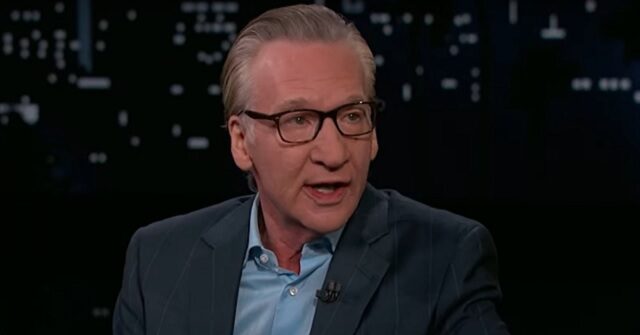On a recent episode of HBO’s “Real Time,” host Bill Maher made a provocative statement about male working-class voters and their stance on abortion, emphasizing the intersection of financial strain and reproductive rights. Maher suggested that these voters, who are grappling with inflation and struggling to make ends meet, should find themselves more supportive of pro-abortion policies. He argued that the financial hardships they face would only be exacerbated by unwanted pregnancies, pointing out that the responsibilities of parenthood can be overwhelming when one is already struggling to afford basic necessities. By highlighting the disconnect between economic challenges and the perceived importance of abortion rights among male working-class individuals, Maher sought to challenge conventional notions of voter priorities and preferences.
The discussion on the show also included insights from radio host Buck Sexton, who addressed the differing poll numbers for male voters supporting Vice President Kamala Harris versus former President Donald Trump. Sexton indicated that the Democratic Party, historically focused on abortion as a pivotal issue, may be overlooking the immediate concerns that resonate more with working-class men. He suggested that for individuals laboring under the constraints of rising costs and inflation, the abortion debate may not rank high on their list of urgent issues. Instead, he contended that jobs, wages, and economic stability dominate their thoughts, shaping their political alignments in ways that might differ from traditional party platforms.
Maher interjected in response to Sexton’s critique, emphasizing the risks of unwanted pregnancies for those already facing economic difficulties. His point was that rather than dismissing the importance of abortion discussions, it is crucial for these voters to acknowledge the broader implications of reproductive rights in the context of their financial realities. By stating that a man struggling to pay bills could face an even steeper challenge if he were suddenly required to support a child he is not prepared for, Maher reframed the abortion debate to highlight its relevance to economic stability and personal autonomy. This reframing serves to connect the dots between economic hardship and reproductive choices, making a case that those affected by inflation should align their views more closely with pro-abortion perspectives.
The conversation underscores a significant dichotomy in political priorities where issues like abortion may seem secondary to immediate economic concerns for segments of the population. Maher’s assertion calls attention to the need for political parties, particularly Democrats, to communicate effectively about how reproductive rights are intertwined with economic issues. It raises the question of whether political messaging surrounding abortion fails to resonate with certain demographic groups simply because it neglects to connect these issues with their lived experiences and economic challenges. By advocating for a more integrated approach to discussing abortion rights in the context of financial struggle, Maher illustrates the potential for reevaluating voter priorities in political campaigns.
Such discussions also bring to light the broader implications for both political strategies and societal perceptions of reproductive rights. For working-class men, the connection between accessing abortion services and economic security could redefine how they engage in political discourse. This reevaluation not only challenges the traditional narratives around who supports abortion rights but also highlights the necessity for a holistic understanding of how various societal issues overlap and impact individuals’ lives. In this sense, Maher’s comments may serve as a wake-up call for Democratic candidates and allies, urging them to better address the economic implications of reproductive choices and adapt their outreach accordingly.
Ultimately, the debate on “Real Time” illustrates the growing complexity of the political landscape as economic pressures reshape voter motivations. By centering the discussion around the intersection of financial struggles and reproductive rights, figures like Maher advocate for a more nuanced understanding of political engagement among working-class populations. As economic conditions continue to evolve, the necessity for addressing the multifaceted nature of voter issues becomes increasingly evident. Engaging these voters on the grounds of their immediate concerns could lead to shifting perceptions and potentially alter the political dynamics in the coming elections.

